There will be no seminar this week.

Photo credit: Brittany Stevens from flickr/Creative Commons
IRES Seminar Series
Time: 12:30pm to 1:30pm (every Thursday)
Location: AERL Theatre (room 120), 2202 Main Mall
*********************************************************************************
This seminar video will be available in 1 to 2 months once Zia Mehrabi’s article is published.
Abstract: Natural disasters can lead to devastating crop yield losses. These yield losses can in turn impact on global food production, influencing trade dynamics, prices and global food security. Despite a well-voiced appreciation that we need a better understanding of how future global food production can absorb or resist shocks, the mechanics of exactly how this can be done is poorly understood. Many questions remained unanswered. Is the world prepared for breadbasket failure? What losses might we expect from multiple co-occurring disasters? Have humans created a global food production system which houses unnecessary risk? In this lecture I will attempt to address these questions with quantitative analysis of global food production data. We will explore if the world currently has all its ‘eggs in one basket’, and what steps we might be able to take to mitigate the risks associated with global food production into the future.
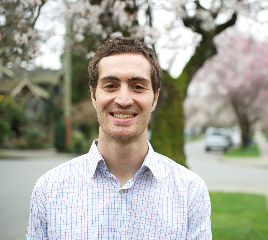
Bio: Zia Mehrabi is a Post Doctoral Research Fellow at IRES, with adjunct positions in The Liu institute for Global Studies & The Centre for Sustainable Food Systems. He works on issues of sustainability, resilience, and positive change in the global food system.
Twitter: @ZiaMehrabi
Web: http://www.ramankuttylab.com/
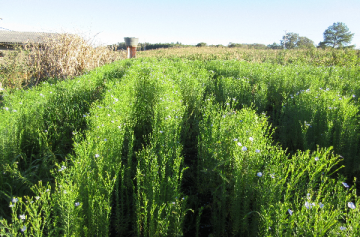
Photo credit: Jill Guerra
IRES Seminar Series
Time: 12:30pm to 1:30pm (every Thursday)
Location: AERL Theatre (room 120), 2202 Main Mall
This IRES Professional Development Seminar will focus on the opportunities, challenges, and tradeoffs of pursuing/holding jobs in academics (e.g. faculty positions).
It will feature a panel discussion with IRES faculty all stars Navin Ramankutty, Jiaying Zhao, and Mark Johnson. Kai Chan will moderate.
Bios:
Dr. Mark Johnson is working to understand how land use practices influence interactions between hydrological and ecological processes, and how these ecohydrological processes further affect ecosystem services including carbon sequestration. Unraveling interactions between the water cycle and the carbon cycle is essential for improving the sustainability of land and water management, especially under changing climatic conditions. Dr. Johnson’s research in ecohydrology demonstrates that soil carbon processes are also integrally important to the health of freshwater ecosystems and drinking water supplies. Dr. Johnson and his team are testing carbon and water cycle interactions to address questions such as: How much carbon does water transport from the land into freshwater systems? His research can also help to answer very applied questions related to soil fertility and water use such as: How much food can be produced in urban environments, and how much water would that require? To address these and other related questions, Johnson is developing innovative approaches to ecohydrological research in partnership with communities, natural resource management agencies and organizations, and industry.
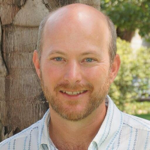
Dr. Navin Ramankutty is Professor and Canada Research Chair in Global Environmental Change and Food Security at the Liu Institute for Global Issues and the Institute for Resources, Environment, and Sustainability at the University of British Columbia. His research program aims to understand how humans use and modify the Earth’s land surface for agriculture and its implications for the global environment. Using global Earth observations and numerical ecosystem models, his research aims to find solutions to the problem of feeding humanity with minimal global environmental footprint. He contributed to the Millennium Ecosystem Assessment report and to the Fourth Assessment Report of the Intergovernmental Panel on Climate Change. He was an editor of the journal Global Food Security and Global Ecology and Biogeography, and is an Associate Editor of Environmental Research Letters. He is a Leopold Leadership Fellow.
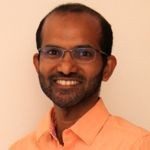
What is psychology good for? How can psychology contribute to sustainability? To answer these questions, Dr. Jiaying Zhao aims to use psychological principles to design behavioral solutions to address sustainability challenges. This approach offers insights on how cognitive mechanisms govern human behavior, and how behavioral interventions can inform the design and the implementation of public policy. Dr. Zhao is currently examining the cognitive causes and consequences of scarcity, what behavioral interventions improve the performance in low-income individuals, how to promote recycling and composting behavior, water and energy conservation, what cognitive, motivational, and sociocultural factors shape the perception of climate change, and how to engage the public on biodiversity conservation.

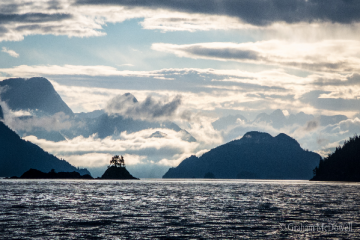
Photo credit: Graham McDowell
IRES Seminar Series
Time: 12:30pm to 1:30pm (every Thursday)
Location: AERL Theatre (room 120), 2202 Main Mall
Speakers: RES PhD Candidates Michiko Namazu and Jason Brown
_______________________________________________________________________
Abstract:
Vancouver is a metropolitan hub of the carsharing world. The region holds 4 independent carsharing services (Modo, Zipcar, Car2go and Evo) that offer over 2,000 carsharing vehicles in total. A quarter of Vancouver residents are members of carsharing services, and the carshaing fleet size per capita is the largest in North America. However, even though Vancouver is a leader in carsharing, very few attempts have been made so far to understand the roles and meanings of these services. Do these services contribute to reduce greenhouse gases? How about their effects on vehicle dependency? In my talk, I will present my latest findings about the environmental benefits yielded from carsharing. My talk also covers the macro picture of carsharing – the evolution of carsharing services. Vancouver, a pioneer of carsharing, is an ideal region to explore what benefits carsharing services have provided already, and what benefits these services can provide in the future.
Bio:
Michiko is a Ph.D. candidate at the Institute for Resources, Environment and Sustainability at the University of British Columbia. Her research interests are focused around sharing economies, where people share goods rather than own them. She is interested in examining how/whether this shift from ownership to access, enhanced by internet-communication technologies, leads to fewer energy and/or material consumptions. For her Ph.D. thesis, she analyzes carsharing services as an example of a sharing economy. She explores the environmental impacts of carsharing, vehicle ownership reduction by carsharing, characteristics of carsharing users, travel behaviour changes induced by carsharing, etc.
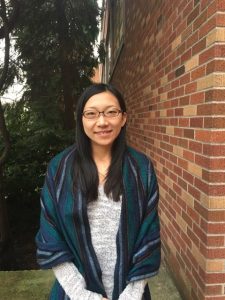
_______________________________________________________________________
What is the relationship between religious belief, embodied experience, and the environment? Spiritual Ecology, an emerging discipline at the nexus of the sciences and the humanities, sometimes referred to as Religion and Ecology, seeks to explore this terrain. Jason’s presentation, a case study in Spiritual Ecology, will focus on the relationship that four monastic communities in the American West have developed with their landscapes including both management practices and spiritual practices, embodied experience and religious belief, their sense of place and their sense of ultimate meaning. It is a contemplative ethnography, a geography of the heart, and a spiritual ecology.
Bio:
Jason was born in Southern California, but since 2001 has lived in many different places including the Dominican Republic, Connecticut, Utah, Oregon and, now Vancouver. His undergraduate work was in anthropology at Brigham Young University, where he studied traditional Guatemalan forestry practices. As a joint Master’s student at Yale he studied forestry and theology, going on to work as a professional forester and adjunct professor of Ethics and Religion in Salt Lake City. He is currently a fourth year PhD Candidate with the Institute for the Resources, Environment and Sustainability (IRES) working with Terre Satterfield. His dissertation research focuses on the spiritual ecology of four Catholic monastic communities in the American West, their land use and management, beliefs, sense of place, and embodied spirituality. He is the Co-Founder of the Salish Sea Spiritual Ecology Alliance, and a Co-Producer of Experiencing the Sacred: Where Spirit Meets World in Vancouver, a weekly radio program on Vancouver Coop Radio CFRO 100.5 FM. His blogs on Patheos.com is called Holyscapes. He recently contributed to a volume entitled Coming of Age at the End of Nature: A Generation Faces Living on a Changed Planet.
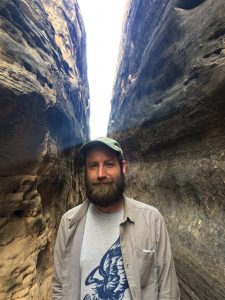
IRES Seminar Series
Time: 12:30pm to 1:30pm (every Thursday)
Location: AERL Theatre (room 120), 2202 Main Mall
Abstract:
Climate change is causing more than warmer oceans and erratic weather. It can also change the shape of the planet. Glaciers are a fundamental link between climate and the tectonic and surface processes that create topography. Mountain ranges worldwide have undergone large-scale modification due the erosive action of ice, yet the mechanisms that control the timing of this modification and the rate by which ice erodes remain poorly understood. We find a wide range of erosion rates from individual ice masses over varying timescales, suggesting that modern erosion rates exceed long-term averages by two to three orders of magnitude. We also see that glaciers in Patagonia erode 1000 times faster than they do in Antarctica today. These modern rates are likely due to the dynamic acceleration of these ice masses as air and ocean temperatures warmed and they retreated over the past few decades. The repercussions of this erosion add to the already complex effects of climate change in polar and high mountain regions. Shrinking and accelerating glaciers destabilize slopes upstream, increasing the risk of landslides, and deposit more sediment in downstream basins, potentially impacting fisheries, dams and access to clean freshwater in mountain communities. And the dramatic increase in modern erosion rates suggest that glaciers in the Canadian Arctic, one of the most rapidly warming regions in the world, are on the brink of a major shift that will see them speeding up and eroding faster as temperatures warm above 0ºC.
Bio:
Michele Koppes is an Assistant Professor in Geography at UBC, a Canada Research Chair in Landscapes of Climate Change, a faculty affiliate at IRES and a Senior TED Fellow. Her passion is forensic geomorphology: the art of reading landscapes to decipher the forces that shaped them. Her particular expertise is in glaciers, and their impact in shaping mountains and polar regions at a variety of time scales, from last year to the last million years. Her research focus is two-fold: to determine the efficacy of glaciers as agents of erosion, and to determine the climatic and oceanic drivers of glaciations in high mountains and coastal settings. She has current field projects in high places all over the world, from BC to Patagonia, Alaska, the Himalayas, Greenland and Antarctica, where her team combines detailed field observations with numerical modeling of ice-ocean dynamics and glacier mass balance.
Michele Koppes is an Assistant Professor in UBC Department of Geography and is also a new Faculty Associate in IRES.
Seminar video unavailable due to technical issues.
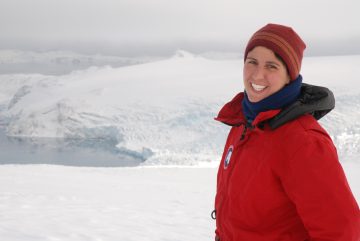
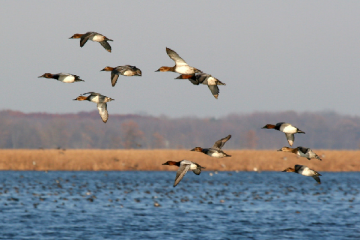
Photo credit: Dominic Sherony from flickr/Creative Commons
IRES Seminar Series
Time: 12:30pm to 1:30pm (every Thursday)
Location: AERL Theatre (room 120), 2202 Main Mall
(Note: Sophia Murphy will not be presenting because she is sick.)
_______________________________________________
Due to changes in Canadian case law, there is a growing focus on making space for Indigenous rights and interests in BC’s environmental assessment process. However, despite this increased attention, First Nations are continuing to report that their interests are poorly represented in evaluations of project effects. This disconnect is the focus of my thesis research, and in this talk, I discuss findings from a review of fifteen EA certificate applications approved by the provincial government between 2011 and 2016. I found that evaluations of the extent and significance of potential impacts on Indigenous rights and interests are now central (and required) components of every EA. However, the methods most commonly used to carry out such analyses tend to rely on settler-colonial assumptions about culture and value that often invalidate or obscure issues of critical concern to First Nations. Moreover, this negation is so commonplace that my evaluation revealed a consistent set of precise mechanisms through which project proponents systematically exclude Indigenous interests in such applications. In my research, I refer to these patterns as “strategies of exclusion”, and for the purposes of this presentation, I will identify five of the most common and describe two.
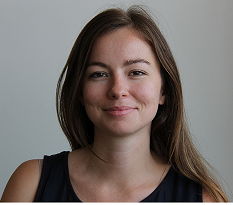
Holly Andrews
RES MA student
Holly Andrews is currently pursuing a master’s degree at the Institute for Resources, Environment and Sustainability under the supervision of Dr. Terre Satterfield and Dr. Michael Meitner. At present, her research interests include land use and resource management, issues concerning Indigenous land and governance rights, intersections between cultural and environmental values, and environmental justice. Her thesis work explores the representation of Indigenous interests in environmental assessment processes, and the systematic erasure of such interests in proponent certificate applications specifically.
In addition to pursuing graduate studies, Holly also has four years’ experience as a planning associate at EcoPlan International (EPI), a Vancouver-based consulting firm that specializes in community planning and values-based decision making. Holly’s research is supported by SSHRC, Mitacs, and EPI. She holds a BA in political science, also from the University of British Columbia.
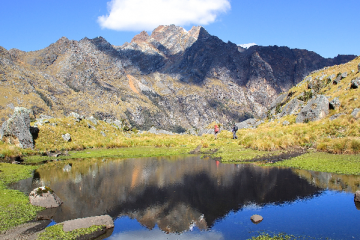
Photo credit: Julian S. Yates
IRES Seminar Series
Time: 12:30pm to 1:30pm (every Thursday)
Location: AERL Theatre (room 120), 2202 Main Mall


*********************************************************************************************************
Abstract:
Accelerating rates of land conversion for agriculture, development, and resource extraction have challenged us to identify creative ways to sustain biodiversity, protect ecosystem services, and support human health and well-being within “working landscapes.
This challenge becomes urgent when we consider that in many regions, persistence of the most vulnerable species and ecosystems requires sustainable management of privately-owned and multi-use lands.
Fortunately, there are a growing number of tools and approaches that can be used to identify, monitor, and incentivize key conservation actions. I highlight examples showing new ways that private sector investments and public-private partnerships can improve sustainability of tropical and temperate agroecosystems and achieve positive social and ecological outcomes at regional, national, and international levels.
Bio:
Amanda Rodewald’s research seeks to understand the behavioral and demographic mechanisms guiding population, community, and landscape-scale responses of birds to land use change and human activity in North, Central and South America.
She tightly integrates her research and outreach efforts to inform policy and management and regularly interacts with government agencies, conservation organizations, and private landowners. Her national leadership activities include service to the Science Advisory Board of the US EPA and as a regular columnist to The Hill.
Optional Reception and Lunch with Amanda Rodewald after the seminar:
Time: 1:30pm to 3:30pm
Location: AERL 107/108 (down the hall from AERL Theatre)
Please RSVP by emailing Peter Arcese (peter.arcese@ubc.ca)

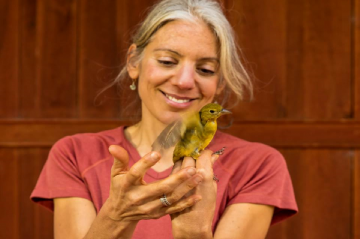
Photo credit: Amanda Rodewald
IRES Seminar Series
Time: 12:30pm to 1:30pm (every Thursday)
Location: AERL Theatre (room 120), 2202 Main Mall
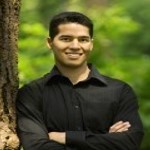
Kai Chan is a professor and Canada Research Chair (tier 2) at the Institute for Resources, Environment and Sustainability at the University of British Columbia. Kai is an interdisciplinary, problem-oriented sustainability scientist, trained in ecology, policy, and ethics from Princeton and Stanford Universities. He strives to understand how social-ecological systems can be transformed to be both better and wilder. Kai leads CHANS lab (www.chanslab.ires.ubc.ca), Connecting Human and Natural Systems; he is a Leopold Leadership Program fellow, a director on the board of the BC chapter of the Canadian Parks and Wilderness Society (CPAWS), a director on the board of the North American section of the Society for Conservation Biology, a member of the Global Young Academy, a senior fellow of the Environmental Leadership Program, a coordinating lead author for the IPBES Global Assessment, and (in 2012) the Fulbright Canada Visiting Research Chair at the University of California, Santa Barbara.
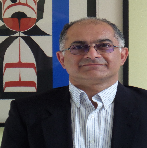
Hadi sees the world as interacting social, economic and environmental systems. He has over 160 publications, graduated 44 PhDs and studied many systems and their policy solutions. He has served as Lead Author for the IPCC and the Millennium Ecosystem Assessment. He is Canada Research Chair in Applied Mathematics and Global Change at UBC, Adjunct Professor in Engineering & Public Policy at Carnegie Mellon University, and University Fellow at Resources for the Future. He received his BSc and PhD in Physics from Edinburgh (1980) and Cambridge (1984) Universities respectively. Outside academia, Hadi co-founded Offsetters and five other green-tech firms.
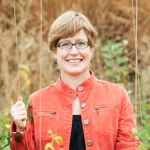
Dr. Hannah Wittman’s research examines the ways that the rights to produce and consume food are contested and transformed through struggles for agrarian reform, food sovereignty, and agrarian citizenship. Her projects include community-based research on farmland access, transition to organic agriculture, and seed sovereignty in British Columbia, agroecological transition and the role of institutional procurement in the transition to food sovereignty in Ecuador and Brazil, and the role that urban agriculture and farm-to-school nutrition initiatives play in food literacy education.

Photo credit: Mahbub Islam from flickr/Creative Commons
Guest speaker: Dr. Alex Davis from Carnegie Mellon University (Pittsburgh, Pennsylvania, USA)
Date: Monday, October 24
Time: 10:30am to 12:00pm
Location changed to AERL 107/108.
Abstract: From radars to radiology, experts have long been asked to detect signals against a noisy and uncertain background. Starting in the middle of the twentieth century, a number of direct comparisons between expert judges and statistical prediction tools found that experts were no better, and most often worse, than even the simplest statistical prediction tools. However, these studies limited experts and tools to the same information, preventing experts from using information in their environment that is not easily translated into statistics. Across a variety of domains, it is not known how much information these tools provide above and beyond assessments made by experts in the natural course of their work. In this talk I discuss ongoing work on predictions by experts about risk and the outcomes of scientific experiments. For the former I discuss a longitudinal cohort study comparing the separate and joint ability of physicians and an electronically integrated statistical prediction tool (the Rothman Index) to predict patient risk of decompensation (defined as a cardiac or respiratory arrest, call to a rapid response team, or transfer to the ICU). For the latter I discuss expert ability to predict optimal combinations of parameters for the development of experimental materials, including nanomaterials, 3D printing of silicone elastomers, and part selection for aerospace metals additive manufacturing.

Photo credit: Fe Ilya from flickr/Creative Commons
Bio: Alex Davis is an Assistant Professor in the Department of Engineering and Public Policy at Carnegie Mellon University. He is a member of the Behavior, Decision, and Policy Group, the Carnegie Electricity Industry Center (CEIC), and the Center for Climate and Energy Decision Making (CEDM). He is currently directing a two year field experiment in collaboration with the Cornell Cooperative Extension examining behavioral approaches to encourage residential energy efficiency, and he is CMU’s acting director of a multi-year, multi-institutional research project on the relationship between science and proven experience. His research focuses on the behavioral foundations of policy, applied to innovation and entrepreneurship, energy, the environment, health, and information and communication technologies. He teaches a graduate course in applied data analysis (19-704).
Alex earned his B.S. from Northern Arizona University in Psychology (2007) and his M.S. (2009) and Ph.D. (2012) from Carnegie Mellon University in Behavioral Decision Research. He worked as a postdoctoral fellow and research scientist at Carnegie Mellon University prior to joining the faculty at Carnegie Mellon.
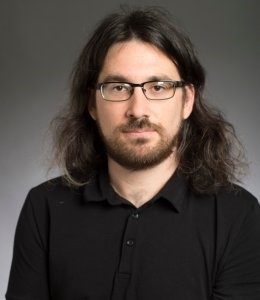
IRES Seminar Series
Time: 12:30pm to 1:30pm (every Thursday)
Location: AERL Theatre (room 120), 2202 Main Mall
*****************************************************************************************
Abstract:
This talk will draw on recent research that examines the implications of future urban expansion on global croplands and energy demand by buildings. Using both top-down and bottom-up approaches and scenarios, we examine operational building energy use, specifically, for heating and cooling. Globally, the energy use for heating and cooling by mid-century will reach anywhere from about 45 EJ/yr to 59 EJ/yr (respectively, increases of 5% to 40% over the 2010 estimate). Most of this variability is due to the uncertainty in future urban densities of rapidly growing cities in Asia and, particularly, in China. A surprising finding is that waiting to retrofit of the existing built environment until markets are ready to widely deploy the most advanced renovation technologies, leads to more savings in building energy use and avoids lock-in.
Our results also show that urban expansion will result in a 1.8-2.4% loss of global croplands by 2030, with substantial regional disparities. About 80% of global cropland loss from urban expansion will take place in Asia and Africa. In both Asia and Africa, much of the cropland that will be lost is more than twice as productive as national averages. Asia will experience the highest absolute loss in cropland while African countries will experience the highest percentage loss of cropland. Globally, the croplands that are likely to be lost were responsible for 3-4% of worldwide crop production in 2000. Urban expansion is expected to take place on cropland that is 1.77 times more productive than the global average. The loss of cropland is likely to be accompanied by other sustainability risks, and threatens livelihoods, with diverging characteristics for different mega-urban regions. Governance of urban area expansion thus emerges as a key area for securing livelihoods in the agrarian economies of the Global South.
This seminar will not be filmed.
Bio:
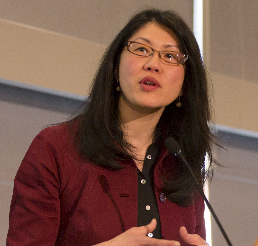
Karen Seto is Associate Dean for Research and Professor at the Yale School of Forestry and Environmental Studies. She is an expert in characterizing and forecasting urbanization, urban mitigation of climate change, and satellite remote sensing. She has pioneered methods to reconstruct land-use dynamics with satellite data and to forecast the expansion of urban areas. She was a Coordinating Lead Author for the IPCC Fifth Assessment Report, and has served on many U.S. National Research Council Committees, including the NRC Committee on Pathways to Urban Sustainability. She was a founding co-chair of the Urbanization and Global Environmental Change Project of the International Human Dimensions Programme, and Executive Producer of the documentary film, “10,000 Shovels: Rapid Urban Growth in China.” From 2000 to 2008, she was on the faculty at Stanford University, in the Woods Institute for the Environment and the School of Earth Sciences. She was named an Aldo Leopold Leadership Fellow in 2009. She joined the Yale faculty in 2008.
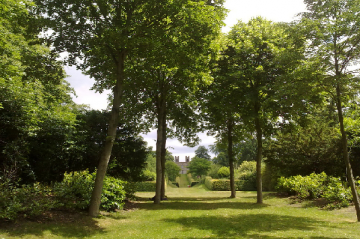
Photo credit: faeryhedgehog from flickr/Creative Commons